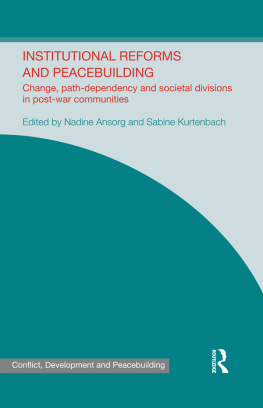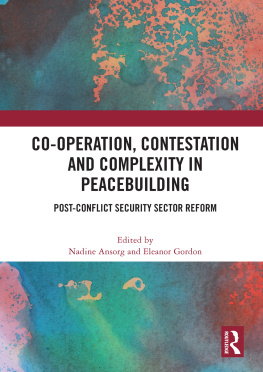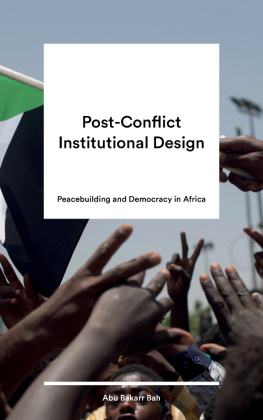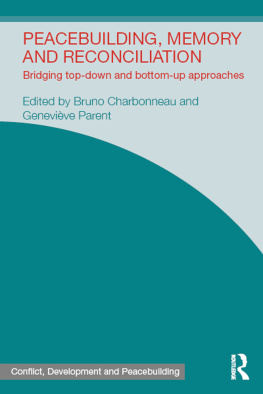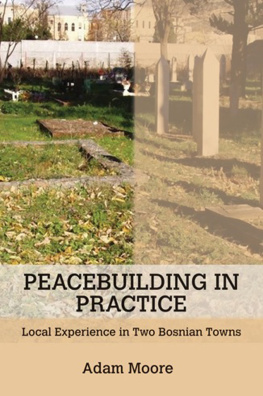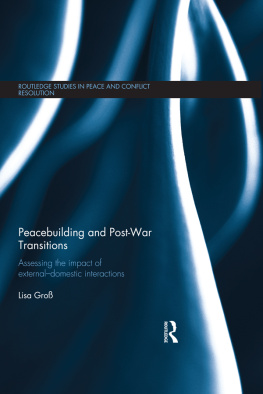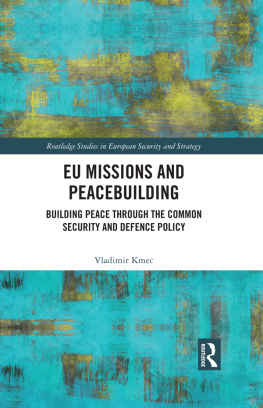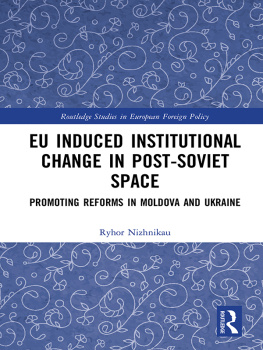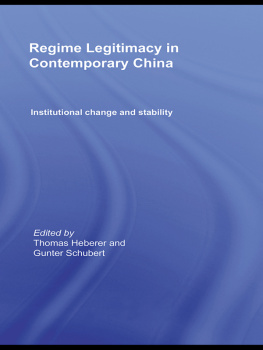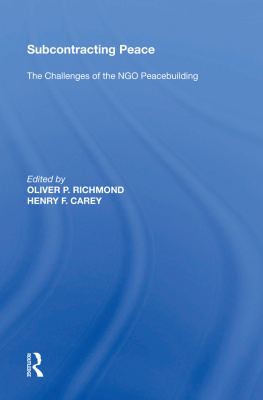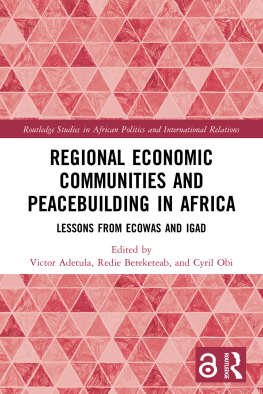Institutional Reforms and Peacebuilding
This book deals with the question of how institutional reform can contribute to peacebuilding in post-war and divided societies.
In the context of armed conflict and widespread violence, two important questions shape political agendas inside and outside the affected societies: How can we stop the violence? And how can we prevent its recurrence? Comprehensive negotiated war terminations and peace accords recommend a set of mechanisms to bring an end to war and establish peace, including institutional reforms that promote democratization and state building. Although the role of institutions is widely recognized, their specific effects are highly contested in research as well as in practice. This book highlights the necessity to include path-dependency, preconflict institutions and societal divisions to understand the patterns of institutional change in post-war societies and the ongoing risk of civil war recurrence. It focuses on the general question of how institutional reform contributes to the establishment of peace in post-war societies. This book comprises three separate but interrelated parts on the relation between institutions and societal divisions, on the path dependency of institutional reform and on security sector reform. The chapters contribute to the understanding of the relationship between societal cleavages, pre-conflict institutions, path dependency and institutional reform.
This book will be of much interest to students of peacebuilding, conflict resolution, development studies, security studies and international relations.
Nadine Ansorg is a Research Fellow at the GIGA German Institute of Global and Area Studies, Germany, and a Post-Doctoral Research Fellow at the University of Kent, UK.
Sabine Kurtenbach is a Political Scientist and Senior Research Fellow at the GIGA German Institute of Global Area Studies, Germany.
Series: Studies in Conflict, Development and Peacebuilding
Series Editors: Keith Krause, Thomas J. Biersteker and Riccardo Bocco, Graduate Institute of International and Development Studies, Geneva
This series publishes innovative research into the connections between insecurity and under-development in fragile states, and into situations of violence and insecurity more generally.
It adopts a multidisciplinary approach to the study of a variety of issues, including the changing nature of contemporary armed violence (conflict), efforts to foster the conditions that prevent the outbreak or recurrence of such violence (development), and strategies to promote peaceful relations on the communal, societal and international level (peacebuilding).
The Political Economy of Peacemaking
Achim Wennmann
The Peace In Between
Post-war violence and peacebuilding
Edited by Mats Berdal and Astri Suhrke
Local and Global Dynamics of Peacebuilding
Postconflict reconstruction in Sierra Leone
Christine Cubitt
Peacebuilding, Memory and Reconciliation
Bridging top-down and bottom-up approaches
Bruno Charbonneau and Genevive Parent
Peacebuilding and Local Ownership
Post-conflict consensus-building
Timothy Donais
Stabilization Operations, Security and Development
States of fragility
Edited by Robert Muggah
Controlling Small Arms
Consolidation, innovation and relevance in research and policy
Edited by Peter Batchelor and Kai Michael Kenkel
An Ethnographic Approach to Peacebuilding
Understanding local experiences in transitional states
Gearoid Millar
Peacebuilding and Ex-Combatants
Political reintegration in Liberia
Johanna Sderstrm
Local Ownership in International Peacebuilding
Key theoretical and practical issues
Edited by Sung Yong Lee and Alpaslan zerdem
Institutional Reforms and Peacebuilding
Change, path-dependency and societal divisions in post-war communities
Edited by Nadine Ansorg and Sabine Kurtenbach
First published 2017
by Routledge
2 Park Square, Milton Park, Abingdon, Oxon OX14 4RN
and by Routledge
711 Third Avenue, New York, NY 10017
Routledge is an imprint of the Taylor & Francis Group, an informa business
2017 selection and editorial material, Nadine Ansorg and Sabine Kurtenbach; individual chapters, the contributors
The right of the editor to be identified as the author of the editorial material, and of the authors for their individual chapters, has been asserted in accordance with sections 77 and 78 of the Copyright, Designs and Patents Act 1988.
All rights reserved. No part of this book may be reprinted or reproduced or utilized in any form or by any electronic, mechanical, or other means, now known or hereafter invented, including photocopying and recording, or in any information storage or retrieval system, without permission in writing from the publishers.
Trademark notice: Product or corporate names may be trademarks or registered trademarks, and are used only for identification and explanation without intent to infringe.
British Library Cataloguing-in-Publication Data
A catalogue record for this book is available from the British Library
Library of Congress Cataloging-in-Publication Data
Names: Ansorg, Nadine, editor. | Kurtenbach, Sabine, editor.
Title: Institutional reforms and peacebuilding : change, path-dependency
and societal divisions in post-war communities / edited by Nadine Ansorg
and Sabine Kurtenbach.
Description: New York, NY : Routledge, 2016. | Series: Studies in
conflict, development and peacebuilding | Includes bibliographical
references and index.
Identifiers: LCCN 2016013417| ISBN 9781138682306 (hardback) | ISBN
9781315545219 (ebook)
Subjects: LCSH: Nation-building. | Peace-building. | Postwar
reconstruction.
Classification: LCC JZ6300 .I55 2016 | DDC 303.6/6--dc23LC record
available at https://lccn.loc.gov/2016013417
ISBN: 978-1-138-68230-6 (hbk)
ISBN: 978-1-315-54521-9 (ebk)
Typeset in Times New Roman
by Saxon Graphics Ltd, Derby
Nadine Ansorg is a Post-Doctoral Research Fellow at the University of Kent and Research Fellow at the GIGA German Institute of Global and Area Studies. Her current research interests include institutional reforms in post-conflict countries, security sector reform and UN peacekeeping. Her current research project (with Sabine Kurtenbach and Julia Strasheim) is on security sector reform, funded by the German Research Foundation.
Matthias Basedau is Lead Research Fellow at the GIGA German Institute of Global and Area Studies in Hamburg, adjunct Professor at Hamburg University and also affiliated to the Peace Research Institute Oslo (PRIO). His research focuses on the role of ethnicity, political institutions, natural resources and religion as determinants of conflict.
Volker Boege is a peace researcher and historian, and a Research Fellow at the School of Political Science and International Studies at the University of Queensland, Brisbane, Australia. His fields of work include peacebuilding and state formation; non-Western approaches to conflict transformation; and environmental degradation and conflict. His main regional area of expertise is Oceania. He has published numerous articles, papers and books on peace research and contemporary history.

